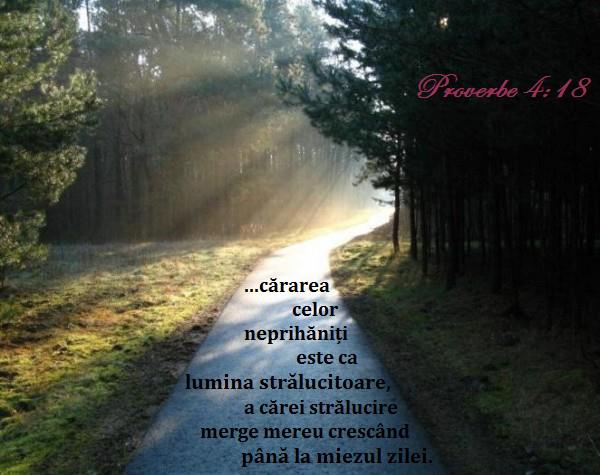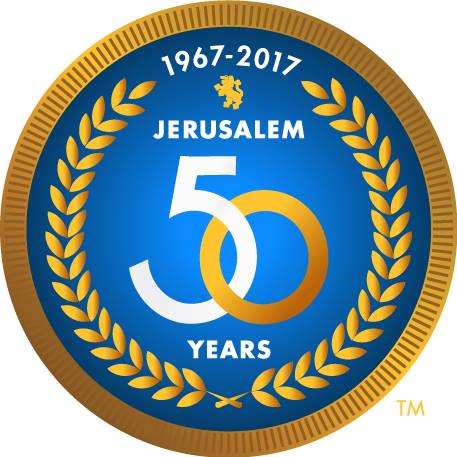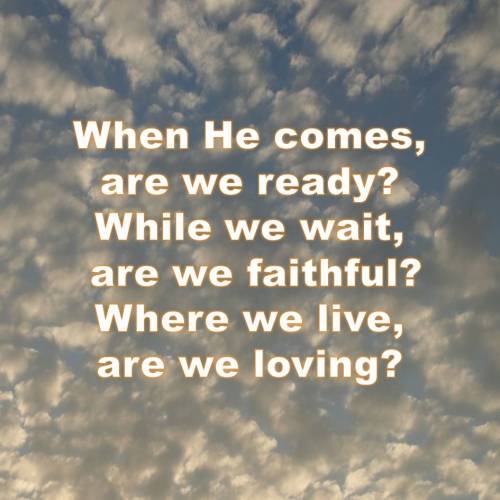Christianity can be condensed into four words: Admit, Submit, Commit and Transmit. -Samuel Wilberforce
Friday, September 29, 2017
PRAYER FOR DIVINE FORGIVENESS AT WESTERN WALL-WATCH:Pre-Yom KippurPrayers
Christianity can be condensed into four words: Admit, Submit, Commit and Transmit. -Samuel Wilberforce
Tens of thousands of people attend communal prayers nightly at the Western Wall during the High Holiday season, asking for Divine forgiveness.
The Kotel in the Old City of Jerusalem is especially busy in the days leading up to Rosh Hashana through Yom Kippur, when Jews pray for forgiveness for any sins committed during the past year.
Jewish prayer services are generally held during the day and early evening, but the selichot prayers, asking forgiveness during the High Holiday season, are different. They take place past midnight and in the wee hours of the morning.
Both Ashkenazim (Jews of German and eastern European background) and Sephardim (Jews of Spanish, Portuguese, North African and Middle Eastern descent) recite selichot, although there are differences in tradition. This particular video, made by photographer Eli Abdu ahead of Yom Kippur, depicts a sephardic service, which is evident in the word pronunciation and tune.
https://www.youtube.com/watch?time_continue=1&v=EzUOwM-G1A8
MORE ARTICLES ABOUT YOM KIPPUR :
https://unitedwithisrael.org/category/yom-kippur/
JERUSALEMONLINE.COM-Op-Ed:The damaging effect of the Replacement Theology -A time for Christian soul searching-Jackie Goodall
Christianity can be condensed into four words: Admit, Submit, Commit and Transmit. -Samuel Wilberforce

 Op-Ed: A time for Christian soul searching
Op-Ed: A time for Christian soul searching
Jackie Goodall explains the damaging effect of the Replacement Theology. She highlights that its teachings are often used in anti-Semitism campaigns and for rallying support for anti-Israel organizations.
As the Jewish nation enters Yom Kippur, a day of repentance and affliction of the soul, many in the Christian church might also do well to search their souls and seek their own atonement with God for the dreadful way the church has treated the Jews and the State of Israel throughout the centuries and over the past 70 years respectively.
Some, but by no means all of the mainline churches have strayed far from their Biblical roots and from their original support for the nascent State of Israel. When John Winthrop landed in Massachusetts Bay in 1630, he used Biblical imagery of a promised land when he spoke of “We shall be as a City upon a Hill, the eyes of all people are upon us…” – a speech often considered to have seeded the Christian Zionist movement.
Winthrop and his Congregationalist followers would surely be turning in their graves at the anti-Israel antics of their successor United Church of Christ (one of the largest Protestant denominations in the United States) in the 21st century, whose stated aim is to “contribute to ending the Israeli military occupation of the Occupied Palestinian Territories: the West Bank, East Jerusalem and Gaza.”
The UCC’s biased and deceptive stance results in active engagement with the BDS movement and the labeling of Israel’s actions towards Palestinians as “apartheid.” Similar divisive stances have been taken by the United Methodist, Presbyterian, Lutheran and Episcopal churches.
Although Pope Francis reversed a longstanding opposition to Jewish statehood in an October 2015 address when he declared not only that the “State of Israel has every right to exist in safety and prosperity” but that anti-Zionism is a form of anti-Semitism, the recent furore concerning security measures at the Temple Mount might lead one to question just how strong that support is.
The Catholic Church appeared to place the blame for the violence squarely on Israel’s shoulders while referring to the site exclusively by its Muslim name just as the Latin Patriarchate of Jerusalem expressed its concern about “any change to historical (Status Quo) situation in al-Aqsa Mosque (Haram ash-Sharif),” disregarding any Jewish or Christian connection.
Bishop Munib Younan, head of the Evangelical Lutheran Church of Jordan and the Holy Land, commented on Vatican radio that the metal detectors are a form of “collective punishment” that should not be permitted “because of an attack by two persons.” The Geneva-based World Council of Churches (WCC) then joined the bandwagon of condemnation, firmly putting its support behind the Palestinian “Day of Rage” and the subsequent riots and violence.
Much of the blame for this type of thinking within the church can be laid at the door of the theological error known as Replacement Theology – the belief that the church has replaced Israel. Highly damaging, it negates the legitimacy of the State of Israel and the Jews’ right of return. It also allegorizes the many Biblical prophecies concerning the physical restoration of Israel and the ingathering of the Jews into promises of blessing for the church instead.
The over-spiritualization of the Scriptures has not only led some Christians to reject the Genesis account of creation, but also the covenant promises God made with Israel. Many are also of the opinion that the Hebrew Scriptures, known to Christians as the Old Testament, were “nailed to the cross” and are therefore irrelevant to Christianity.
This theology would not be so damaging if it were kept within the confines of church buildings, but the result of its teachings often spills over into blatant anti-Semitism and support for NGOs that are highly damaging to the State of Israel.
That said, since the reunification of Jerusalem 50 years ago, growing numbers of Evangelical Christians are drawing closer to their Jewish roots by standing with and praying for Israel, as well as celebrating the Biblical feasts and holidays. As a result, many Christians and Jews are forming close friendships and ties, with Christians enjoying a new spiritual awakening as they discover aspects of the Scriptures they’d never previously considered.
Many are also questioning the validity of the traditional Christian festivals of Christmas and Easter, with some going so far as to observe their Sabbath from Friday sundown to Saturday sundown instead of the traditional Sunday. These Christians don’t wish to convert to Judaism however; they simply yearn to rediscover the foundations of their 2,000-year-old faith and seek to live a more authentic Christian life.
On Monday, October 10, during the Jewish festival of Sukkot, thousands of Christians from more than 80 countries will throng the streets of Jerusalem for the annual Jerusalem March. Organized by the International Christian Embassy Jerusalem (ICEJ), these modern-day Christian Zionists will once again declare their love and support for the State of Israel by marching through the streets of Jerusalem waving their national flags. Expectations are that it will be a historic convocation with great prophetic significance, given that this Jubilee Year marks 50 years since Jerusalem’s reunification.
Evangelical Christians are well known for their unequivocal support for the State of Israel. It’s a stance that is not only growing but will always remain solid because it is founded not on whim or circumstance, rather on a committed belief in standing with Israel and blessing the Jewish people; a Biblical mandate found in Genesis where God tells Abraham “I will bless those who bless you, and I will curse those who curse you; and in you all the families of the earth shall be blessed.Sep 29, 2017, 9:00AMJackie Goodal
”
”

Jackie Goodall explains the damaging effect of the Replacement Theology. She highlights that its teachings are often used in anti-Semitism campaigns and for rallying support for anti-Israel organizations.
Labels:
JERUSALEMONLINE,
Replacement Theology
WHEN IS THE NEXT BIBLICAL JUBILEE?WILL BE YOM KIPPUR 2017. IT WILL BEGIN IN THE EVENING OF FRIDAY, 29 SEPTEMBER 2017.
Christianity can be condensed into four words: Admit, Submit, Commit and Transmit. -Samuel Wilberforce
• WHEN IS THE NEXT BIBLICAL JUBILEE?
• WHEN IS THE NEXT BIBLICAL JUBILEE?
IF SO, THE NEXT JUBILEE IN ISRAEL WILL BE YOM KIPPUR 2017. IT WILL BEGIN IN THE EVENING OF FRIDAY, 29 SEPTEMBER 2017.
When Is The Next Biblical Jubilee?
It is here!  . IT WILL BEGIN IN THE EVENING OF FRIDAY, 29 SEPTEMBER 2017 and end the very next day evening. The same day as the Yom Kippur 2017
. IT WILL BEGIN IN THE EVENING OF FRIDAY, 29 SEPTEMBER 2017 and end the very next day evening. The same day as the Yom Kippur 2017
Leviticus 25:9 Then you shall cause the trumpet of the Jubilee to sound on the tenth day of the seventh month; on the Day of Atonement YOU SHALL MAKE THE TRUMPET TO SOUND THROUGHOUT ALL YOUR LAND.
Tuesday, September 26, 2017
Keep Going!
Christianity can be condensed into four words: Admit, Submit, Commit and Transmit. -Samuel Wilberforce

Keep Going!
Therefore, since we are surrounded by such a great cloud of witnesses, let us throw off everything that hinders and the sin that so easily entangles. And let us run with perseverance the race marked out for us, fixing our eyes on Jesus, the pioneer and perfecter of faith (Hebrews 12:1-2).

Keep Going!
Therefore, since we are surrounded by such a great cloud of witnesses, let us throw off everything that hinders and the sin that so easily entangles. And let us run with perseverance the race marked out for us, fixing our eyes on Jesus, the pioneer and perfecter of faith (Hebrews 12:1-2).
In the Christian life, endurance is essential for moving forward into the promises of God. Yet have you noticed how various obstacles can try to hinder your movement forward?
Shame, the past, current struggles, all of these things can be hurdles on the path before us. But no matter what you may face in the future, or are up against today, I want to encourage you to fix your eyes on Jesus. He has overcome the world, and in Him, so can you!
Jesus has gone before you and made a way for you to persevere to the end, to finish the race well. So don’t give up! Fix your eyes on Jesus and keep going!Christine Caine – First Things First
"That I may know him, and the power of his resurrection, and the fellowship of his sufferings, being made conformable unto his death; if by any means I might attain unto the resurrection of the dead. Not as though I had already attained, either were already perfect: but I follow after, if I may apprehend that for which also I am apprehended of Christ Jesus. Brethren, I count not myself to have apprehended: but this one thing I do, forgetting those things which are behind, and reaching forth unto those things which are before, I press toward the mark for the prize of the high calling of God in Christ Jesus."
-Philippians 3:10-14 KJV.
-Philippians 3:10-14 KJV.
NewsNet Creştin: ✡ Rabin David Nagy: Despre Yom T’ruah sau Rosh Ha’Shanah...
Christianity can be condensed into four words: Admit, Submit, Commit and Transmit. -Samuel Wilberforce
NewsNet Creştin: ✡ Rabin David Nagy: Despre Yom T’ruah sau Rosh Ha’Shanah...:
 ✡ Rabin David Nagy: Despre Yom T’ruah sau Rosh Ha’Shanah
✡ Rabin David Nagy: Despre Yom T’ruah sau Rosh Ha’Shanah
UPDATE NewsNet Creştin: Cu convingerea deplină că sărbătorile majore evreieşti au o importantă semnificaţie şi pentru creştini, aşa cum v-am obişnuit deja, readucem in atenţia cititorilor noştri un material solicitat domnului Rabin David Nagy, preşedintele Federaţiei Comunitătilor Evreieşti Mesianice din România, de această dată referitor la Sărbătoarea Rosh Ha'Shanah.
Publicat de Creştin ProIsrael la 00:00
NewsNet Creştin: ✡ Rabin David Nagy: Despre Yom T’ruah sau Rosh Ha’Shanah...:
UPDATE NewsNet Creştin: Cu convingerea deplină că sărbătorile majore evreieşti au o importantă semnificaţie şi pentru creştini, aşa cum v-am obişnuit deja, readucem in atenţia cititorilor noştri un material solicitat domnului Rabin David Nagy, preşedintele Federaţiei Comunitătilor Evreieşti Mesianice din România, de această dată referitor la Sărbătoarea Rosh Ha'Shanah.
Descrierea acestei sarbatori trebuie impartita in doua parti. Pe de o parte, sarbatoarea este un eveniment mentionat si poruncit a se tine in Scripturi, iar pe de alta parte, a primit niste conotatii specific evreiesti dupa distrugerea Templului (Beyt Ha’Mikdash) din Yerushalayim (Ierusalim).
In Kitvey Ha’Kodesh (Sfintele Scripturi), aceasta sarbatoarea se numeste Yom T’ruah, adica Ziua Sunatului din shofar (instrument de suflat/sunat confectionat din corn de berbec sau antilopa).
In traditia evreiasca, aceasta sarbatoarea se numeste Rosh Ha’Shanah, adica Anul Nou sau Inceputul Anului.
In Kitvey Ha’Kodesh (Sfintele Scripturi), aceasta sarbatoarea se numeste Yom T’ruah, adica Ziua Sunatului din shofar (instrument de suflat/sunat confectionat din corn de berbec sau antilopa).
In traditia evreiasca, aceasta sarbatoarea se numeste Rosh Ha’Shanah, adica Anul Nou sau Inceputul Anului.
Va’yikra/Levitic 23;23-25. (versiunea mesianica)
“Adonay a vorbit lui Mosheh şi a zis: „Vorbeşte fiilor lui Israel şi spune-le: „În luna a şaptea, în cea dintâi zi a lunii, să aveţi o zi de odihnă, vestită cu sunet de shofar, şi o întrunire sfântă. Atunci să nu faceţi nicio lucrare de slugă şi să aduceţi Lui Adonay jertfe mistuite de foc.””
“Adonay a vorbit lui Mosheh şi a zis: „Vorbeşte fiilor lui Israel şi spune-le: „În luna a şaptea, în cea dintâi zi a lunii, să aveţi o zi de odihnă, vestită cu sunet de shofar, şi o întrunire sfântă. Atunci să nu faceţi nicio lucrare de slugă şi să aduceţi Lui Adonay jertfe mistuite de foc.””
Prima data ne vom ocupa de primul aspect si anume, semnificatia sarbatorii din punct de vedere al traditiei evreiesti. In mod interesant, conform traditiei evreiesti, aceasta sarbatoare se numeste Anul Nou. Fapt care practic contrazice Scriptura, daca e sa o luam dupa calendarul stabilit sau lasat de Adonay Elohim (Domnul “D-zeu”) in Scripturi. Pentru ca, data sau ziua cand aceasta sarbatoare trebuie sa aibe loc, este prima zi a lunii a 7-a. Deci nu poate fi “Anul Nou”, pentru ca nu are loc in prima zi a primei luni. Atunci de ce totusi traditia evreiasca a numit-o “Anul Nou” sau Rosh Ha’Shanah? Unul din motive este ca, trebuia sa fie o sarbatoare legata de jertfe, iar jertfele puteau fi aduse doar la Templu, in Yerushalayim. Insa, dupa distrugerea Templului (Beyt Ha’Mikdash) din Yerushalayim (Ierusalim), exista pericolul ca poporul care a ajuns in exil sa “uite” sarbatoarea. Deci, ca sa nu se uite sarbatoarea, trebuie sa i se atribuie si o semnificatie pe baza careia sa poata fi tinuta si in afara Ierusalimului si fara Templu. Asa ca, i s-a atribuit aceasta semnificatie de An Nou, bazata pe scrierile din Talmud (colectie de interpretari evreiesti despre Scriptura), care spun ca, in acea zi, adica in prima zi a lunii a saptea, (Tishri) a fost creat omul. Pe de alta parte, in Iudaism exista mai multe date cu semnificatia de An Nou. De exemplu “Anul nou al pomilor”… etc. Asa ca, iudaismul celebreaza aceasta sarbatoare ca o comemorare a creatiei omului. Si conform traditiei si al unui joc de cuvinte, se consuma cap de peste, ca in anul care urmeaza, evreul sa fie cap si nu coada, rosh insemnand cap. Se mai consuma mere imbibate in miere ca anul care vine sa fie unul fructuos si dulce.
Tot de partea traditionala evreiasca tin si anumite interpretari religioase ale acestei zile, dintre care amintim cateva. Aceasta zi, in context religios evreiesc, se numeste Ziua Judecatii si se spune ca, in aceasta zi, se deschid trei carti. Cartea Vietii, unde vor fi inscrisi cei care vor trai si anul care urmeaza, Cartea mortii, unde vor fi inscrisi cei care vor muri in anul care urmeaza si cartea, unde sunt inscrisi cei al caror viitor inca nu s-a decis. De aceea, cainta (t’shuvah) si rugaciunile pentru iertare, numite slichot (iertari) incep deja cu o luna inainte. Apoi, dupa aceasta zi, urmeaza o perioada de zece zile (yamim noraim) sau zilele groazei pana la Yom Ha’Kipurim (Ziua Ispasirilor), care are loc in ziua a 10-a a lunii a saptea, cand se va decide definitiv cine si in care carte ramane inscris. O alta traditie spune ca, in aceasta zi, satan apare inaintea Lui Adonay (Domnul) si acuza pe toti oamenii. Asa ca, in aceasta zi, se suna din shofaruri de peste 100 de ori (sau toata ziua), pentru ca satan si demonii lui care sunt “innebuniti” de sunetul shofarului, sa nu poata pune cap la cap nici-o acuzatie veritabila impotriva evreului.
Iar acum, vom trece la partea Scripturala si semnificatia acestei zile in contextul Noului Legamant. In primul rand, trebuie mentionat ca exista sapte sarbatori/zile speciale anuale ale Lui Adonay (Domnul). Primele patru, sunt sarbatori ce au loc primavara si care s-au implinit la venirea Lui Yeshua Ha’Mashiach (Isus Christos). Ultimele trei, se vor implini la revenirea Lui Yeshua Ha’Mashiach (Isus Christos). Ultimele trei zile speciale sunt dupa cum urmeaza: Yom T’ruah (Ziua sunatului), Yom Ha’Kipurim (Ziua Ispasirilor) si Sukot (Colibele).
Asa cum primele patru sarbatori au coincis cu cate un eveniment din lucrarea de rascumparare a Lui Yeshua Ha’Mashiach (Isus Christos), aceasta zi speciala de Yom T’ruah (Ziua Sunatului (din shofar)) va fi implinirea evenimentului REvenirii Lui. Pentru a intelege mai bine, vom face o paralela intre Torah (Legea/cele 5 carti ale lui Mosheh) si Ha’Brit Ha’Chadashah (Noul Legamant).
In Torah, la Sh’mot/Exod 19;16-19. (versiunea mesianica) scrie: “A treia zi dimineaţa, au fost tunete, fulgere şi un nor gros pe munte; shofarul răsuna cu putere, şi tot poporul din tabără a fost apucat de spaimă. Mosheh a scos poporul din tabără, spre întâmpinarea lui Elohim, şi s-au aşezat la poalele muntelui. Muntele Sinay era tot numai fum, pentru că Adonay Se coborâse pe el în mijlocul focului. Fumul acesta se înălţa ca fumul unui cuptor, şi tot muntele se cutremura cu putere. Shofarul răsuna tot mai puternic. Mosheh vorbea, şi Elohim îi răspundea cu glas tare.”
Elementele cheie din acest pasaj sunt:
1. Poporul trebuia sa-L intalneasca pe Elohim (D-zeu). Versetul 11 si 17.
2. Elohim s-a coborat in mijlocul sunetului de shofar. (Nu scrie niciunde ca Mosheh ar fi dus cu el vre-un shofar, deci e clar ca, a fost adus si sunat din partea Lui Adonay (Domnul) din Ha’Shamayim (Ceruri).)
3. Adonay s-a coborat pana la nivelul norilor. Versetul 16.
4. Adonay a vrut sa “stea” cu poporul, dar poporul nu era sfant. Versetul 12 si 17.
Asa cum primele patru sarbatori au coincis cu cate un eveniment din lucrarea de rascumparare a Lui Yeshua Ha’Mashiach (Isus Christos), aceasta zi speciala de Yom T’ruah (Ziua Sunatului (din shofar)) va fi implinirea evenimentului REvenirii Lui. Pentru a intelege mai bine, vom face o paralela intre Torah (Legea/cele 5 carti ale lui Mosheh) si Ha’Brit Ha’Chadashah (Noul Legamant).
In Torah, la Sh’mot/Exod 19;16-19. (versiunea mesianica) scrie: “A treia zi dimineaţa, au fost tunete, fulgere şi un nor gros pe munte; shofarul răsuna cu putere, şi tot poporul din tabără a fost apucat de spaimă. Mosheh a scos poporul din tabără, spre întâmpinarea lui Elohim, şi s-au aşezat la poalele muntelui. Muntele Sinay era tot numai fum, pentru că Adonay Se coborâse pe el în mijlocul focului. Fumul acesta se înălţa ca fumul unui cuptor, şi tot muntele se cutremura cu putere. Shofarul răsuna tot mai puternic. Mosheh vorbea, şi Elohim îi răspundea cu glas tare.”
Elementele cheie din acest pasaj sunt:
1. Poporul trebuia sa-L intalneasca pe Elohim (D-zeu). Versetul 11 si 17.
2. Elohim s-a coborat in mijlocul sunetului de shofar. (Nu scrie niciunde ca Mosheh ar fi dus cu el vre-un shofar, deci e clar ca, a fost adus si sunat din partea Lui Adonay (Domnul) din Ha’Shamayim (Ceruri).)
3. Adonay s-a coborat pana la nivelul norilor. Versetul 16.
4. Adonay a vrut sa “stea” cu poporul, dar poporul nu era sfant. Versetul 12 si 17.
Si acum sa vedem echivalentul in Ha’Brit Ha’Chadashah (Noul Legamant) al acestui eveniment:
1 Tes. 4;16-17. “Căci însuşi Domnul, cu un strigăt, cu glasul îngerului conducător şi cu shofarul lui Elohim, Se va coborî din cer, şi întâi vor învia cei morţi în Ha’Mashiach (Christos). Apoi, noi cei vii, care vom fi rămas, vom fi luaţi toţi împreună cu ei în nori, ca să întâmpinăm pe Domnul în aer; şi astfel vom fi totdeauna cu Domnul.”
1. Poporul trebuie sa intalneasca (intampine) pe Domnul.
2. Domnul coboara cu shofarul Lui Elohim (D-zeu) in mijlocul sunetului de shofar.
3. Domnul va cobora pana la nivelul norilor.
4. Poporul care va fi deja sfintit, va fi totdeauna cu El.
1 Tes. 4;16-17. “Căci însuşi Domnul, cu un strigăt, cu glasul îngerului conducător şi cu shofarul lui Elohim, Se va coborî din cer, şi întâi vor învia cei morţi în Ha’Mashiach (Christos). Apoi, noi cei vii, care vom fi rămas, vom fi luaţi toţi împreună cu ei în nori, ca să întâmpinăm pe Domnul în aer; şi astfel vom fi totdeauna cu Domnul.”
1. Poporul trebuie sa intalneasca (intampine) pe Domnul.
2. Domnul coboara cu shofarul Lui Elohim (D-zeu) in mijlocul sunetului de shofar.
3. Domnul va cobora pana la nivelul norilor.
4. Poporul care va fi deja sfintit, va fi totdeauna cu El.
Cu aceste dezvaluiri, dorim tuturor sa ajunga sa creada in Yeshua Ha’Mashiach (Isus Christos), ca sa fie sfintiti si rascumparati in ziua in care El va reveni si asa sa ajunga la Yom Ha’Kipurim (Ziua Ispasirilor) si apoi la imparatia de Sukot (colibele) cand “Cortul Lui Elohim (D-zeu) va fi cu oamenii”.
Ha’Hitgalut/Revelatia 21;3. (versiunea mesianica). “Şi am auzit un glas tare care ieşea din scaunul de domnie şi zicea: „Iată cortul lui Elohim este cu oamenii! El va locui cu ei, şi ei vor fi poporul Lui, şi Elohim însuşi va fi cu ei. El va fi Elohimul lor.”
Labels:
NewsNet Creştin,
Rosh Ha’Shanah,
Yom T’ruah
Saturday, September 16, 2017
HALLELUJAH / ALLELUIA !!! PRAISE THE LORD! !!!
Christianity can be condensed into four words: Admit, Submit, Commit and Transmit. -Samuel Wilberforce
Psalm 106:1, 48 – “Praise ye the LORD. O give thanks unto the LORD; for He is good: for His mercy endureth forever….Blessed be the Lord God of Israel from everlasting to everlasting: and let all the people say, Amen. Praise ye the LORD.”
Psalm 113:1, 9 – “Praise ye the LORD. Praise, O ye servants of the LORD, praise the name of the LORD….He maketh the barren woman to keep house, and to be a joyful mother of children. Praise ye the LORD.”
Psalm 135:1, 21 – “Praise ye the LORD. Praise ye the name of the LORD; praise Him, O ye servants of the LORD….Blessed be the LORD out of Zion, which dwelleth at Jerusalem. Praise ye the LORD.”
Psalm 148:1, 14 – “Praise ye the LORD. Praise ye the LORD from the heavens: praise Him in the heights….He also exalteth the horn of His people, the praise of all His saints; even of the children of Israel, a people near unto Him. Praise ye the LORD.”
Jeremiah 20:13 – “Sing unto the LORD, praise ye the LORD: for He hath delivered the soul of the poor from the hand of evildoers.”
HALLELUJAH / ALLELUIA
HALLELUJAH
While the Hebrew words הָלַל (halal) and יָהּ (Yahh) combine form “Hallelujah” (Halleluyah) the word itself does not appear in the KJV of the Bible, nor does its literal translation “Praise ye Jehovah.” However, it is rendered “Praise ye the LORD.” Because this phrase stands at the beginning of ten of the Psalms (106, 111-113, 135, 146-150), they are called the “Hallelujah Psalms.” As can be seen below, it also appears twelve additional times in the Psalms:
Psalm 104:35 – “Let the sinners be consumed out of the earth, and let the wicked be no more. Bless thou the LORD, O my soul. Praise ye the LORD.”
Psalm 105:45 – “That they might observe His statutes, and keep His laws. Praise ye the LORD.”
Psalm 106:1, 48 – “Praise ye the LORD. O give thanks unto the LORD; for He is good: for His mercy endureth forever….Blessed be the Lord God of Israel from everlasting to everlasting: and let all the people say, Amen. Praise ye the LORD.”
Psalm 111:1 – “Praise ye the LORD. I will praise the LORD with my whole heart, in the assembly of the upright, and in the congregation.”
Psalm 112:1 – “Praise ye the LORD. Blessed is the man that feareth the LORD, that delighteth greatly in His commandments.”
Psalm 113:1, 9 – “Praise ye the LORD. Praise, O ye servants of the LORD, praise the name of the LORD….He maketh the barren woman to keep house, and to be a joyful mother of children. Praise ye the LORD.”
Psalm 116:19 – “In the courts of the LORD’s house, in the midst of thee, O Jerusalem. Praise ye the LORD.“
Psalm 117:2 – “For His merciful kindness is great toward us: and the truth of the LORD endureth forever. Praise ye the LORD.”
Psalm 135:1, 21 – “Praise ye the LORD. Praise ye the name of the LORD; praise Him, O ye servants of the LORD….Blessed be the LORD out of Zion, which dwelleth at Jerusalem. Praise ye the LORD.”
Psalm 146:1, 10 – “Praise ye the LORD. Praise the LORD, O my soul….The LORD shall reign forever, even thy God, O Zion, unto all generations. Praise ye the LORD.”
Psalm 147:1, 20 – “Praise ye the LORD: for it is good to sing praises unto our God; for it is pleasant; and praise is comely….He hath not dealt so with any nation: and as for His judgments, they have not known them. Praise ye the LORD.”
Psalm 148:1, 14 – “Praise ye the LORD. Praise ye the LORD from the heavens: praise Him in the heights….He also exalteth the horn of His people, the praise of all His saints; even of the children of Israel, a people near unto Him. Praise ye the LORD.”
Psalm 149:1, 9 – “Praise ye the LORD. Sing unto the LORD a new song, and His praise in the congregation of saints….To execute upon them the judgment written: this honor have all His saints. Praise ye the LORD.”
Psalm 150:1, 6 – “Praise ye the LORD. Praise God in His sanctuary: praise Him in the firmament of His power….Let every thing that hath breath praise the LORD. Praise ye the LORD.”
Jeremiah 20:13 – “Sing unto the LORD, praise ye the LORD: for He hath delivered the soul of the poor from the hand of evildoers.”
[Note: The phrase “Praise ye the LORD” appears in Judges 5:2 and Jeremiah 20:13, but both are based on different Hebrew words.]
ALLELUIA
The Greek form of the word actually does appear in the KJV, and it is not translated. All four occurrences are found in Revelation Nineteen:
Revelation 19:1-6 – “And after these things I heard a great voice of much people in heaven, saying, Alleluia; Salvation, and glory, and honor, and power, unto the Lord our God: for true and righteous are His judgments: for He hath judged the great whore, which did corrupt the earth with her fornication, and hath avenged the blood of His servants at her hand. And again they said, Alleluia. And her smoke rose up forever and ever. And the four and twenty elders and the four beasts fell down and worshipped God that sat on the throne, saying, Amen; Alleluia. And a voice came out of the throne, saying, Praise our God, all ye His servants, and ye that fear Him, both small and great. And I heard as it were the voice of a great multitude, and as the voice of many waters, and as the voice of mighty thunderings, saying, Alleluia: for the Lord God omnipotent reigneth.”
WHETHER YOU ARE A FORMER JEW OR A FORMER GENTILE,
AS A BORN AGAIN BELIEVER,
YOU HAVE MUCH FOR WHICH TO PRAISE THE LORD!
REPOSTED FROM PAUL MUTSCHLER
Labels:
ALLELUIA,
HALLELUJAH,
PRAISE THE LORD!
Subscribe to:
Posts (Atom)
























